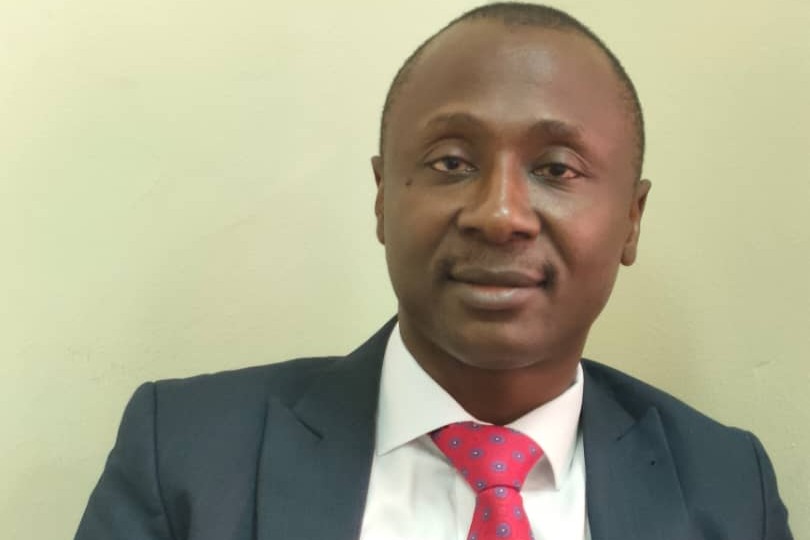
The rapid and alarming expansion of cybercrime has catapulted it to the top of Nigeria’s national challenges. Financial crimes, particularly money laundering, increasingly rely on cybercrime activities, causing immediate harm through data theft and service disruptions. Cybercriminals operate in the shadows of the dark web, a clandestine section of the internet where they exchange stolen information, launder money, and evade law enforcement. Nigeria must swiftly grasp the nexus between cyberattacks and illicit financial flows to safeguard its financial stability from anti-money laundering (AML) measure evasion.
Banks, businesses, and individuals are the prime targets for cybercriminals seeking sensitive financial information. Once they have this data, criminals sell it on dark web markets, enabling them to commit fraud and identity theft. The profits from these criminal activities seep beyond their original scope as they are reintroduced into legitimate financial systems through advanced money laundering techniques. This vicious cycle not only undermines Nigeria’s financial stability but also erodes public confidence in the financial system.
The sale of stolen bank accounts and payment cards represents a primary method by which cybercrime facilitates money laundering. Through phishing or ransomware attacks plus data breaches, criminals collect account details, which they sell anonymously on dark web forums. These accounts enable buyers to move illegal money while hiding its actual source. Standard AML controls fail to detect these unauthorised transactions because they mimic legitimate activity, which presents detection difficulties.
The emergence of cryptocurrencies has made it more difficult for Nigeria to combat cyber-enabled money laundering activities. Bitcoin and other digital currencies such as Ethereum and Monero offer rapid transactions with anonymous features, which draws criminal interest in hiding illegal money flows. The challenging traceability of cryptocurrencies makes them the preferred payment method for cybercriminals when demanding ransoms, making AML enforcement challenging to execute.
The dark web’s anonymous environment enables criminals to bypass AML controls altogether. AML systems depend on the ability to monitor financial transactions within regulated banking systems and platforms. Transactions on the dark web are intentionally structured to bypass established regulatory controls. Financial institutions and law enforcement cannot effectively identify and halt illicit transactions because they lack visibility into hidden transactions.
Nigeria urgently needs to bolster its cybersecurity and AML systems through several crucial enhancements to tackle these complex problems. The key focus should be on fostering stronger cooperative relationships between cybersecurity teams and AML experts. The exchange of cyber threat intelligence between these entities significantly enhances their ability to track and identify transactions linked to cybercrime, underscoring the importance of collaboration in this fight.
Financial institutions must establish advanced monitoring systems utilising artificial intelligence (AI) and machine learning capabilities. These technologies analyse patterns and anomalies to identify money laundering activities associated with cybercrime while enhancing response efficiency and lowering false favourable rates.
Regulatory authorities need to enforce cybersecurity protocols that specifically target financial risk reduction. Security measures through clear cybersecurity regulations for financial institutions would reinforce defences against cyber threats while reducing money laundering opportunities.
Public awareness initiatives and educational programs fulfil a vital function. Educating individuals and businesses about cyber threats such as phishing attacks helps them secure personal and corporate information. Higher public awareness lowers the possibility of data breaches that result in cyber-enabled financial crimes.
Effective cybercrime investigation demands specialised training and resources for law enforcement agencies. Creating specialised units with expertise in digital forensics, cryptocurrency tracking, and dark web investigations can effectively disrupt cybercriminal operations.
The challenge of handling cybercrime and money laundering brings Nigeria to a critical decision point. The fight against cyber-enabled financial crime demands a unified strategy that combines strong cybersecurity measures with advanced AML technologies, regulatory actions, and international partnerships. All stakeholders must act immediately and maintain ongoing efforts to protect Nigeria’s financial stability from threats from the dark web.
Abayomi is a seasoned cybersecurity and Anti-Money Laundering/Combating the Financing of Terrorism (AML/CFT) manager at the Central Bank of Nigeria.






